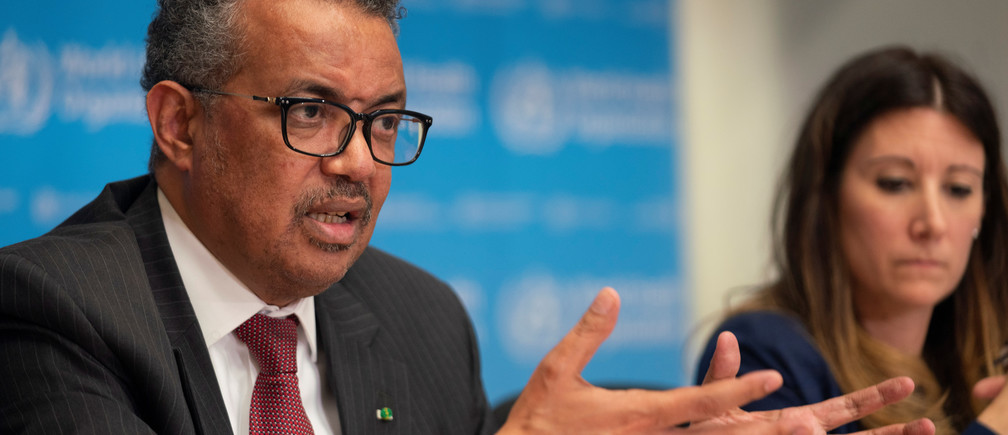How is the World Health Organization funded?

The UN agency is coordinating the global response to the coronavirus pandemic. Image: Reuters

Explore and monitor how COVID-19 is affecting economies, industries and global issues

Get involved with our crowdsourced digital platform to deliver impact at scale
Stay up to date:
COVID-19
- The World Health Organization's biggest donor, the US, has halted funding.
- UN chief said now is "not the time" to cut funds.
US president Donald Trump said on Tuesday he would halt funding to the World Health Organization over its handling of the coronavirus pandemic, while his administration reviews the WHO's response to the global crisis.
UN Secretary General António Guterres said now is "not the time" to cut funds to the WHO.
"The international community [should] work together in solidarity to stop this virus," he said.
"It is my belief that the World Health Organization must be supported, as it is absolutely critical to the world's efforts to win the war against COVID-19."
The US is the biggest single donor to the Geneva-based WHO. It contributed more than $400 million in 2019, roughly 15% of the WHO's annual budget.

The second-largest funder is the Bill and Melinda Gates Foundation, which provides 9.8% of the WHO's funds.
The WHO launched an appeal in March for $675 million to help fight the coronavirus pandemic. It is reported to be planning a fresh appeal in coming days.
Other countries are stepping up their own financial support for the organization. The UK, for example, has announced £200 million in new funding for international efforts to contain and combat the pandemic, including £65 million for the WHO.
The WHO’s total budget for 2018–2019 was approved at $4.4 billion. There was no approved budget for humanitarian response plans and other appeals, as they are driven by events.
In 2018, the WHO's spending totalled $2.3 billion, down 4% from 2017. The organization said its base programmes represented 60% of spending in 2018, while polio, emergencies and special programmes represented the remaining 40%.
Don't miss any update on this topic
Create a free account and access your personalized content collection with our latest publications and analyses.
License and Republishing
World Economic Forum articles may be republished in accordance with the Creative Commons Attribution-NonCommercial-NoDerivatives 4.0 International Public License, and in accordance with our Terms of Use.
The views expressed in this article are those of the author alone and not the World Economic Forum.
Related topics:
The Agenda Weekly
A weekly update of the most important issues driving the global agenda
You can unsubscribe at any time using the link in our emails. For more details, review our privacy policy.
More on COVID-19See all
Charlotte Edmond
January 8, 2024
Charlotte Edmond
October 11, 2023
Douglas Broom
August 8, 2023
Simon Nicholas Williams
May 9, 2023
Philip Clarke, Jack Pollard and Mara Violato
April 17, 2023








